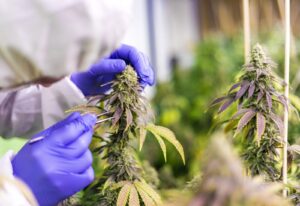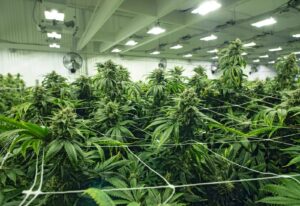
The California legislature is currently finalizing a bill (SB-1459) which would establish a provisional licensing regime for California cannabis businesses. The bill moved into “enrolled” status late last week, which means that SB-1459 has been approved by both houses of the state legislature and is being proofread to ensure all amendments were properly inserted. Once SB-1459 is “correctly engrossed”, only a signature from Governor Brown is needed for the bill to take immediate effect. In all, provisional licensing seems imminent.
These pending, provisional licenses would provide holders with a year-long, non-renewable, provisional license to operate after filing completed license applications. These provisional licenses would alleviate pressures on licensing agencies caused by the backlog of pending applications. Provisional licenses would also allow holders to continue operating, rather than potentially ceasing operations later this year. On that point, the SB-1459 legislative findings are compelling:
The significant number of cultivation license applications pending with local authorities that do not have adequate resources to process these applications before the applicants’ temporary licenses expire on January 1, 2019, threatens to create a major disruption in the commercial cannabis marketplace.”
Cannabis licensing in California is a relatively recent phenomenon and is a requirement for any cannabis business operating in the state. Under current law, licensing authorities may issue temporary licenses pending the approval of final licenses. Temporary licenses can be issued for 120-day periods, with certain allowable extensions. According to the Senate Floor Analysis of SB-1459, the temporary license was intended as an intermediary step while local and state regulatory bodies themselves came into compliance with California’s new law. Notably, under the current law, temporary licenses cannot be issued after December 31, 2018.
Perhaps as expected, thousands of cannabis businesses submitted license applications this year. Many of these licenses were sought in Humboldt, Monterey, and Santa Barbara counties, where regulators were not prepared to (and have not been able to) address the flurry of applications. As noted in the Senate Analysis accompanying SB-1459, the barrage of environmental disasters in California—particularly in Santa Barbara—have contributed to the delay in the process. Thus, of the thousands of applications that have been submitted to date, many have yet to be completed.
Originally introduced in February 2018 as a method to bill concerning agricultural reporting issues, SB-1459 underwent substantial revisions during the legislative process. SB-1459 is now almost an entirely new piece of legislation and contains the provisional licensing scheme intended to alleviate the pressures identified above. If the current SB-1459 is codified into law, it would permit licensing authorities—in their sole discretion—to issue provisional licenses for a non-renewable period of 12 months. These licenses could be issued to applicants that hold or even held a temporary license for the same premises and same commercial cannabis activity sought to be licensed, have submitted completed license applications, and in connection with those completed license applications have submitted evidence that compliance with the California Environmental Quality Act (or “CEQA”) is underway. Notably, the Senate Analysis accompanying SB-1459 notes that a provisional license applicant could obtain a license without proof of full CEQA compliance.
SB-1459, if passed, would remain in effect only until January 1, 2020. This would both provide an additional year of breathing room for already swamped regulators and would prevent cannabis businesses from potentially having to cease operations. Not surprisingly, numerous public bodies, private entities, and industry groups (including our California cannabis business lawyers) have supported the bill. Barring unforeseen circumstances, it’s a safe bet that SB-1459 will become law.
























